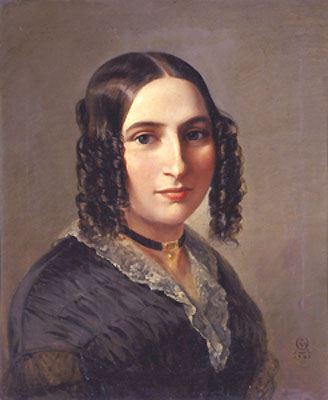History has been less than kind to Fanny Mendelssohn Hensel, the romantic-era composer and older sister of renowned composer Felix Mendelssohn. Since 14 November was her birthday, today offers the ideal opportunity to highlight this unfairly neglected composer and pianist.

Mendelssohn Hensel compose an estimated 500 works, but the vast majority of these have rarely been performed. Hardly any were published during her lifetime as a result of her family’s opposition to her having a musical career. In bourgeois circles in the early 19th century, it was considered unseemly for a woman to work for money. She therefore never had the chance to work with large orchestras and was instead confined to performing salon concerts.
This explains why a large number of her works were for solo piano. Even so, her Sunday concerts became famous in Berlin, attracting the likes of Robert and Clara Schumann, and Franz Liszt.
One of her few larger orchestral works was the Overture in C.
Felix was very close to his sister throughout his life. He published some of Fanny’s works under his name (he famously admitted to Queen Victoria that the monarch’s favourite Mendelssohn composition was actually by his sister). After Fanny died of a stroke in 1847, Felix dedicated his String Quartet No. 6 to her memory, describing it as her requiem.
Fanny Mendelssohn’s obscurity has begun to change somewhat in recent decades. Some of her works have been performed or become the subject of research. Others have inspired productions. Last month, a ballet, “Her Notes,” was premiered in New York based on her cycle of pieces called “Das Jahr” (The Year.”
Mendelssohn Hensel wrote vocal and instrumental works. Her cantatas were influenced by Bach, while her instrumental sonatas and a string quartet written in 1834 have been praised for their lyricism.
